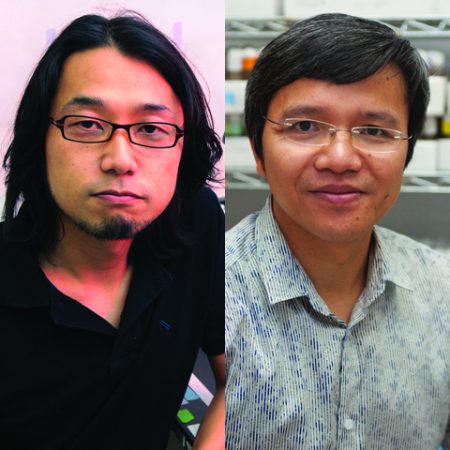
A major discovery involving a cellular competition and space compensation mechanism within tissues is the subject of an article published May 27 in Developmental Cell by a research team at Florida State University.
Yoichiro Tamori, a postdoctoral fellow, and Wu-Min Deng, an associate professor in the Department of Biological Science, were able to identify cell competition in non-proliferating epithelial tissues in fruit flies in which aberrant cells were attacked and eliminated by neighboring normal cells. These normal cells then increased in size to compensate for the space left by the cells eliminated through this process.
Their findings are the first identification of this type of cellular behavior that maintain tissue integrity in non-proliferating epithelial tissues.
“The system that triggers this aberrant cell elimination and space compensation reaction is unknown to us right now,” Deng said. “But there exists the potential for this discovery to have important practical uses in other research and medicine, including perhaps cancer treatment.”
Body tissues continually experience various stresses and damage from both internal and external sources. When these activities result in an emergence of aberrant cells or cell death, the overall tissue or organ is threatened by a risk of cancer, organ dysfunction or developmental anomalies, Deng explained. The fact that there exists a mechanism within tissues comprised of non-proliferating cells, where normal cells eliminate their aberrant counterparts and then increase in size to fill the space left behind is the central discovery in team’s research work.
“Because the cell structure in fruit flies is similar to that of mammals, including humans, we can expect that similar systems are in place in our bodies to remove aberrant cells and maintain tissue integrity and organ size,” Tamori said.
About three years ago, Tamori and Deng published another research paper on their discovery of the “Mahjong” gene that can determine the outcome of cell competition in mammalian tissue that suppresses cancer by causing cancerous cells to self-destruct. This study also established the presence of these types of mechanisms existing in both fruit flies and mammals.




